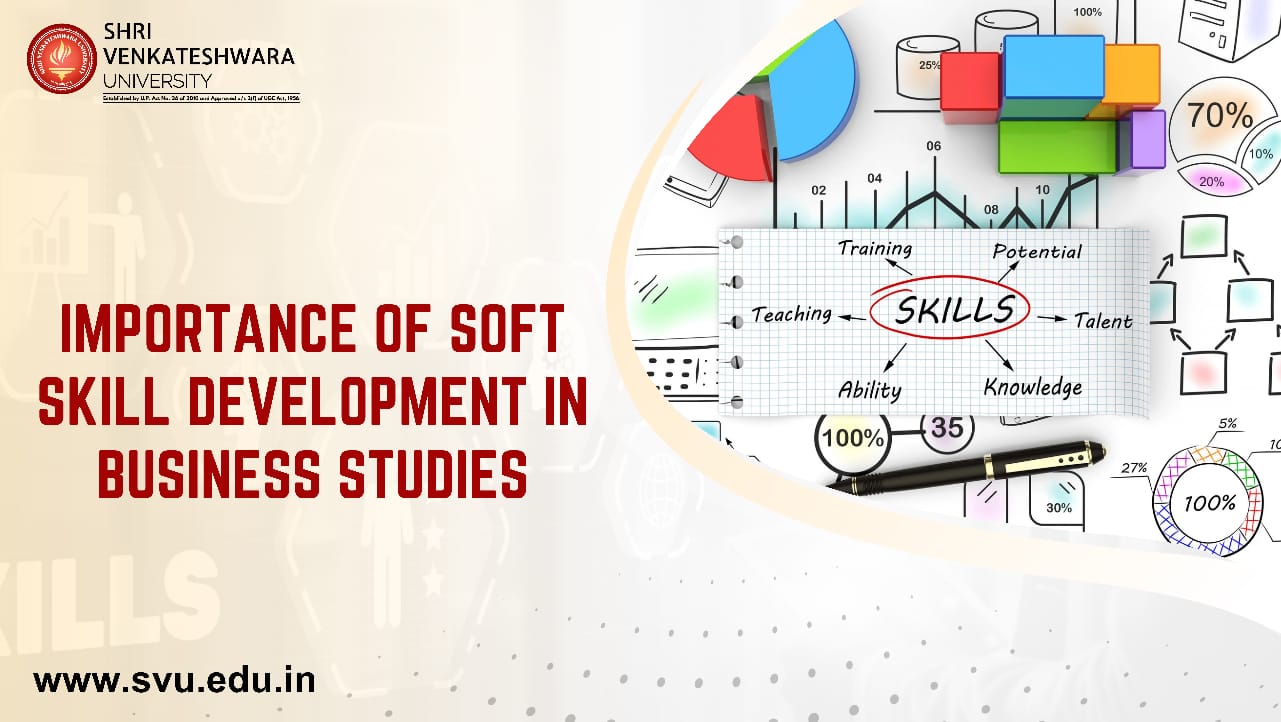
Soft talents are the aptitudes and characteristics that enable an individual to collaborate effectively with others. They frequently seem deceptive and personal. Although they aren't typically explicitly taught in the classroom, soft skills may be acquired and developed over time. Given that they are required in all industries at all levels, it could be more appropriate to refer to them as transferable professional abilities.
The modern educational landscape is evolving quickly. No matter what level of technological competent someone perceives himself to be, they will not succeed in the business world if they are unable to effectively interact with clients or colleagues. Effective communication is a crucial component of soft skills and is used extensively in the business sector. Whichever sector of what sector you work in, soft skills are becoming an increasingly important and sought-after attribute for jobs in the corporate world. The need for soft skills in the workplace has increased competitiveness for both entry-level positions and long-term employment. It is anticipated that all applicants who want to have an advantage over their rivals would hone their soft skills in order to win over clients regardless of the challenges they encounter during the hiring process.
Cost-Effective Approach: One of the standout features of Chandrayaan-3 is its cost-effectiveness. The mission managed to achieve its objectives while keeping the expenses in check. By reusing certain components and optimizing resources, ISRO demonstrated its capability to achieve more with less. This frugal approach has become a hallmark of India's space missions and has garnered international recognition.
Examples of Soft SkillsCommunication: Despite its complexity, communication is essential for success in almost every aspect of life. Knowing what's right or what to do is one thing; being able to articulate that to the appropriate people at the appropriate moment is quite another. Gaining effective verbal and written communication skills is a necessary soft skill for today's workforce.
Interpersonal Skills: Interpersonal skills are all those intangibles you need to relate to others well, form relationships, and create the right kind of rapport in order to get traction and win conversations. They are closely tied to communication.
You were interacting with someone who has extraordinary interpersonal skills if you have ever been in a conversation and come away wondering how the other person got you to agree. Even while some people have excellent interpersonal skills from birth, everyone can pick up techniques to get better at them.
Emotional Intelligence: Being emotionally intelligent means having the capacity to both experience and recognize your own emotions as well as know what they are in the first place. A person with low emotional intelligence or low emotional quotient may find it difficult to remain composed in formal settings such as the workplace or during class discussions. On the other hand, a person with high emotional intelligence would be able to recognize when they are feeling anxious or frustrated and take the appropriate action to counter or lessen those feelings.
Teamwork:It's likely that you have completed a group project at some point throughout your schooling. Group projects might be disliked for a variety of reasons, but they do have an important role in preparing students for the working world. Another essential soft talent in today's corporate world is the capacity to collaborate effectively with others in a team or group setting. Here there are typical traps, from being too timid to take part to becoming too quickly irritated by other people's flaws. Increases in emotional intelligence frequently translate into increases in collaborative skills as well.
Adaptability:The individual who just will not adjust their ideas and will go on, unwaveringly devoted to what is now the incorrect thing, is much worse (particularly in a business setting). Poor adaptation can be shown in both cases. A highly adaptive individual, on the other hand, is able to roll with the punches and make the required adjustments to whatever shifting conditions may arise.
How to Improve Soft Skills: Nowadays universities need to improve their professional curriculum in order to inbuilt soft skills in management students. As a result, they will be able to acquire a good position in the business sector by improving their overall personality and compatibility. Irrespective of the target group the School of Commerce & Management aims to improve a whole range of skills, like assertiveness, negotiation skills, communication skills and the skill to establish and maintain interpersonal relationships through personality development courses.
The mechanisms used in the course:- Project works
- Case studies
- Teamwork /Assignments
- Brainstorming
- PowerPoint Presentations
Students who regularly attend soft skills courses will gain from these sessions in terms of both their overall personality development and employability. It is anticipated that this will be evident in both their performance in interviews for placements and in their overall performance throughout their life. Entry-level managers need technical skills, but their ability to grow in their careers will come from a combination of soft skills and conceptual talents.
Other Innovative Methods that can be employed to develop soft skills include:
- Academic Writing
- Professional Development Programs
- Soft Skill seminar programs
- Collaborative learning
- Cooperative learning
- Problem-solving programs